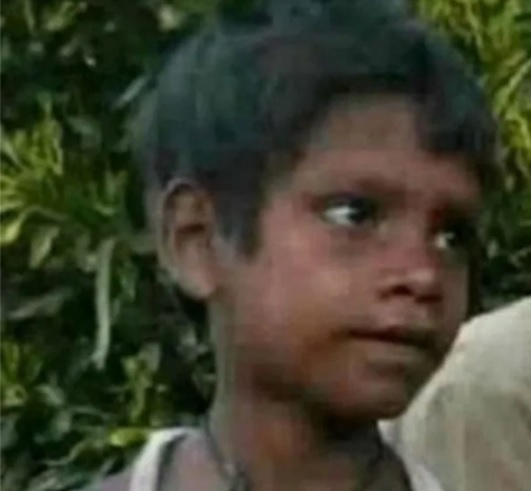Terrifying real life story of an 8-year-old serial killer from Bihar
Thu 24 Jun 2021, 22:05:04

It’s a story that will send chills down your spine. As far as serial killers go, this story is probably the most chilling one you’ll likely hear. It involves three young infants and their killer, who was a mere eight-year-old boy.
The story came to light because of a woman called Chunchun Devi who lived in the same hamlet in Bihar as Amardeep Sada. In June 2007, Chunchund Devi approached the local police to file a complaint against Sada, who at the time was just eight years old. Her allegation was that Sada had murdered her infant daughter Khushboo. She said that she’d left Khushboo in someone’s care at the local primary school while she went about her day.
To be clear, it isn’t entirely unusual for women in villages to leave their children unattended or in the care of someone else while they go to work the field or carry about their day’s jobs. So when Chunchun Devi left Khushboo at the primary school, she didn’t think twice about whether her infant would be in danger. Except, when she did return, she realised the child was missing.
The village in which Chunchun Devi and Amardeep Sada lived wasn’t a very large one. Unlike in cities where it becomes almost impossible to locate a missing child or track down a kidnapper, it’s almost unheard of to have a child go missing. In smaller villages, the kind that Chunchun and Sada inhabited, everyone knows everyone and the prospect of a child being kidnapped is almost zero to none. Unless, the crime has been committed by someone local.
It didn’t take long for Chunchun Devi to work out just who may have been behind her daughter’s disappearance and pointed the police to Amardeep Sada’s family. You see because it was a small village, she’d heard whispers about the boy and his behaviour. But the police, who clearly weren’t in the loop of the Chinese Whispers of the villagers, refused to believe her. Surely, an eight-year-old couldn’t have kidnapped and murdered a child?
After much convincing, they agreed to summon Amardeep Sada and his family to the police station. With some hesitation they asked Amardeep
if he’d had any idea about where Khushboo may be. Young Amardeep answered that not only did he know where she was but also that it was he who had killed her and hidden her corpse.
if he’d had any idea about where Khushboo may be. Young Amardeep answered that not only did he know where she was but also that it was he who had killed her and hidden her corpse.
The police, much in shock, were finding it difficult to believe the young boy so they asked him to take them to the place where he’d buried Khushboo’s corpse. With no hesitation, Amardeep took the cops to the spot where, sure enough, the corpse was discovered buried under some leaves and soil. During the interrogation, Amardeep was calm and collected as he recounted how he had murdered Khushboo. He confessed that he had strangled the little child, hit her with bricks and then buried her in a shallow grave.
Then he went to make an even more shocking revelation: that Khushboo wasn’t his first victim! As it turned out Amardeep had also murdered his own infant sister and cousin! The family, as it would emerge, had known about the two murders but kept it under wraps so as to ‘keep it within the family’.
Amardeep was apparently so collected during that at one point during the interrogation, he even asked for biscuits as if he was narrating a film’s plot and not confessing to three gruesome murders. He is said to have shown no remorse and smiled a lot during the questioning by the police and, eventually, a judge.
A psychoanalyst was summoned to examine Amarjeet. He concluded that the young boy was a psychopath who lacked remorse and had a liking for inflicting pain on other people. He also diagnosed that Amarjeet’s brain was wired in a manner that increased gratification from inflicting pain on others. Amarjeet was said to have no sense of right or wrong and that his condition could have been hereditary.
Since he was under 18, Amardeep was sent off to a juvenile home where he served three years of sentence as Indian laws don’t allow for longer sentences to under age children. Little is known of what happened to him thereafter. Some suggest that he was sent to a mental institution thereafter but one theory suggests that he is now out and roaming free, having served his time.
No Comments For This Post, Be first to write a Comment.
Most viewed from Crime
AIMIM News
Latest Urdu News
Most Viewed
May 26, 2020
Is it right to exclude Bangladesh from the T20 World Cup?
Latest Videos View All
Like Us
Home
About Us
Advertise With Us
All Polls
Epaper Archives
Privacy Policy
Contact Us
Download Etemaad App
© 2026 Etemaad Daily News, All Rights Reserved.

























.jpg)
.jpg)
.jpg)


